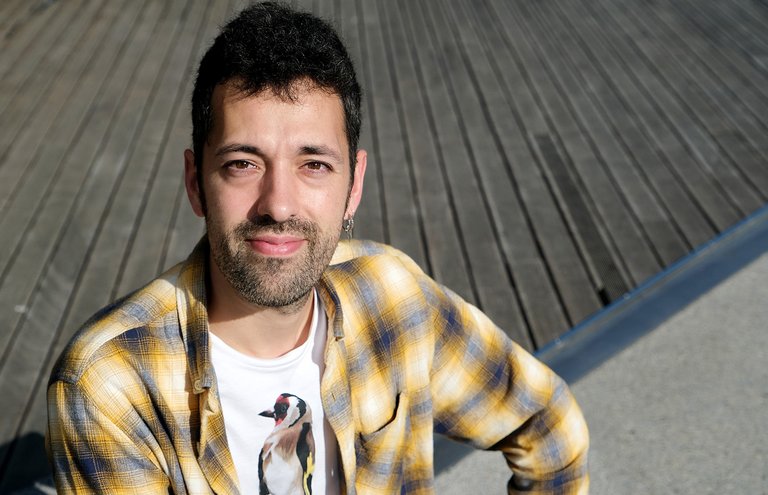"Language is a very complex research issue."

Borja Ariztimuño López is a linguistics researcher. He has completed his thesis on the Archaic Basque Country and is currently researching at the UPV/EHU with a postdoctoral research contract. For some, however, the rest of the researchers who are not in linguistics or “pure” sciences are second-level. Asked for his opinion on this matter, Ariztimuño has stated that such a distinction is customary. "But I don't know where it comes from, because there was a time when sages or understandings were dedicated to researching everything from philosophy to physics -- all at the same time. Then they began to make such distinctions, perhaps according to the way the scientific method was applied in each discipline. In fact, it is true that some procedures may look more like applied sciences than letter disciplines. For example, in philology we do not meet the repeatability criterion, we do not have the possibility to repeat an experiment. It is true that linguistics is a very broad field, and there are branches in which experiments of this kind are made, but in philology we have the texts that we have and we cannot do experiments."
He points out that another reason could be the use of numbers, but that is changing: "Today, in philology, mathematics is also used and quantitative studies are made."
In any case, he has no doubt that he is a researcher: "Each area has its own research topics and its own methodologies, and the important thing is to build on data, use data honestly and propose explanations of reality. In so-called pure sciences, there have also been some changes, right? In the past, it was perhaps believed that things were in a way, and then it has been seen that they were not. Just like math makes mistakes, without math you can also do a scientific analysis of science or reality. In our case, language is a very complex research issue, because it is not easy to measure and, as we speak the language of yesteryear, it is impossible to carry out experiments. But I consider myself a researcher, and my field is science.
And it is precisely in recent times that research on the ancient language has aroused great social interest, above all, by the findings of the hand of Irulegi and the writings of past times. These kinds of findings are impressive even for researchers, as they are actually very few: "Those of us who analyze how the language has developed cannot but turn to the old texts and, with each finding, besides being a new topic, it means that we must also re-read the previous texts," explained Ariztimuño. In fact, new evidence may allow the interpretation of already known texts to be completed or modified.
The voice of inscriptions
In this regard, he mentioned the difference between some poems written in Azkoitia around the year 1500 and the hand of Irulegi and other inscriptions written at that time: "In the case of this Azkoitia poem, we know the Basque then and we can do our research and proposals. In the case of the Aquitans or Vasconians, or whatever, there are not only very few vestiges of the language or languages of that time, but they are so far away, there is so much distance to the following testimonies, that they do not help us directly because we do not understand them".
He has recognised that the first exercise is always philosophical and very speculative. "We usually have a way to read, that is, to decipher sounds, but not with 100% certainty. The truth is, even if you read it, you don't understand its meaning." Therefore, the proposals that are made are necessarily speculative, since the difference between the then language and today's Basque language is similar to the one that exists between today's Latin and Spanish, for example, or between English and Germanic. "There is no way to establish a safe connection, neither in the forms nor in the meaning of them. The only hope is to find more texts. And if one day there was a bilingual inscription, or a stone from Rosetta...", he launched as a longing.
He recognizes that he entered philology for his general interest in Euskera: dialects, evolution... but that he had no intention of dedicating himself to research. The first study was done with Henrike Knörr, in the lesson he taught, about the manuscript of Lazarraga that had just been found. "Casually it was about the verb, or not, and then I've made the thesis about the verb." So he was interested in it as a "geek," and it became a livelihood opportunity, and he's chosen it.
Looking to the future, her natural path is to research and teach at university. She lives with passion in research and believes that it is important to convey not only what she knows, but also that passion: "If we can attract someone, that's what we've already done."
Buletina
Bidali zure helbide elektronikoa eta jaso asteroko buletina zure sarrera-ontzian











